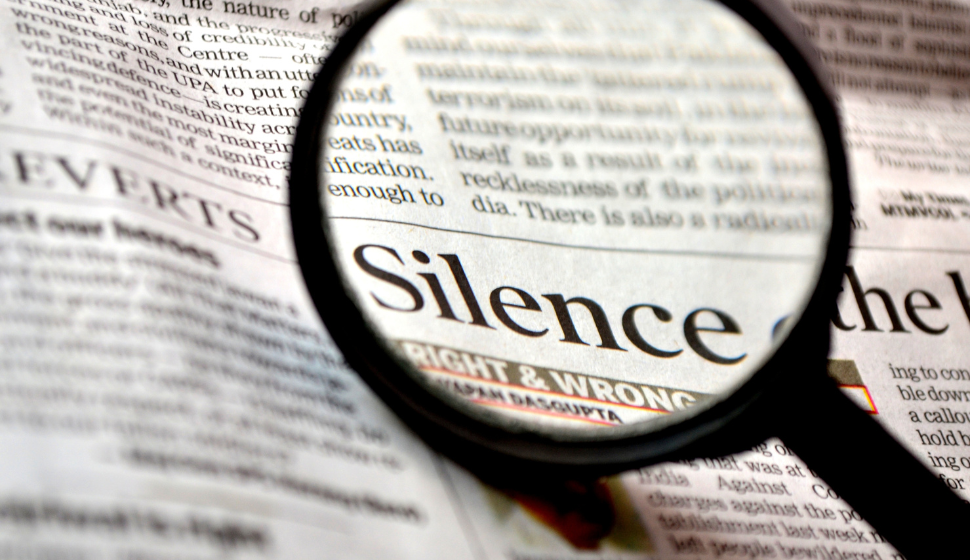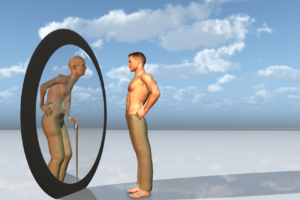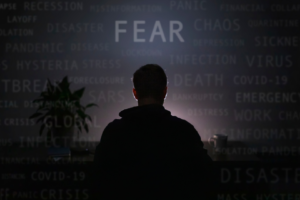
Silence is golden…..But, is it?

Growing up, I was taught that silence was golden. I grew up and continued to believe that that this was true. Then I went to live in England at a time when, as a black African immigrant, it was just more appropriate to be silent. First, it was the expected norm for anyone or group that was supposed to just be seen and not heard. Second, in those days, silence was a survival strategy for someone from my background in a society where racism was rampant, race riots were not uncommon and non-European immigrants were largely considered as an ungrateful inconvenience. In such an environment, it was safer to keep one’s head down and just follow the path of quiet survival in the hope that one could accomplish some modest goals and return home with “something” worthy of acknowledgment. In other words, go back home in a better state than when one left. For the African living in England at the time, home was always one’s country of birth and I never met any Africans who considered themselves so welcome and comfortable in England that they could consider it their permanent home even if they wanted to. This, by the way, was without regard to the length of time that they had lived in England. Africa was always home and they always expected to return.
Then things began to change, and not for the better. It became increasingly common for Africans entrusted with the guardianship of their countries’ resources and hopes to loot their countries’ treasuries without consequence, while neglecting the citizens with whose sweat the nations’ resources were built. Then, gradually, the urge that immigrants from countries like the one in which I was born once had to return home after brief periods of stay abroad began to dissipate. Today, that urge has all but died. It is really the host countries that are the beneficiaries of such migrations, as immigrants leave their homelands to develop other countries where they are not welcome, while their own homelands suffer from persistent degradation at the hands of cruel administrators lacking in respectability, responsibility and conscience.
Though still difficult in most cases, the decision to live permanently away from their native countries has in time become easier and easier for migrants. This has been made even more so not only by wars but also by oppressive and antagonistic national policies sentencing increasing numbers of people to refugee status around our world. With that, a new form of silence has grown, and continues to grow. It is the silence of immigrants and citizens; the silence of good people in a world that is increasingly numb to hateful speech and support for cruelty in high places; the silence of a world that seems too often to have lost its conscience.
As my mind scans our world and history, I struggle to identify a time when silence was indeed golden. I do not contend with the idea that silence offers significant benefits to individuals and small groups. I would be the first to concede that the ability to sit in silence has unique advantages, which is why we encourage and celebrate silence in the practice of my profession. But that, again, speaks to the advantages accruing to individuals and small groups. I cannot ignore the fact that too many have been, and continue to get hurt by society’s propensity for silence. That too should be important even for practitioners of my profession and for our world at large.
But what, really, is the value of silence in a world where the loudest individuals and groups in much of the world tend to receive the prized gains that even the hardest-working people never attain? What is the value of silence when migrants in so many countries are treated like rags without soul? What has been the gain of silence in a world where loud-mouths have been known to commit the worst atrocities in the history of mankind?
We can think of any of the most tragic events in world history and find that the trajectory has always been the same. In every one of those situations, there were always three sides – one that was loud, another that was silent and then the side that stood in the sidelines and watched the tragic history unfold. With regard to every tragic situation in our history, some might say that that was then but this is now. Yet, even now as we live and watch, we are experiencing a world in transition, even if we may not fully realize what these times mean. Once again, some of us are loud in our active participation and support of would-be scourges, some of us sit in silence while the rest of us are in the sidelines of history, watching as if unaffected by, and oblivious of the lessons of history. Right now (not tomorrow or the day after) is the time for each of us to think of the times in which we currently live and honestly ask ourselves what side we are on. Even for one raised to honor silence as I was, I know where I stand. May most of us always have the grace and fortitude to stand on the side to which the lessons of history lead us. After all, silence is not always golden.



